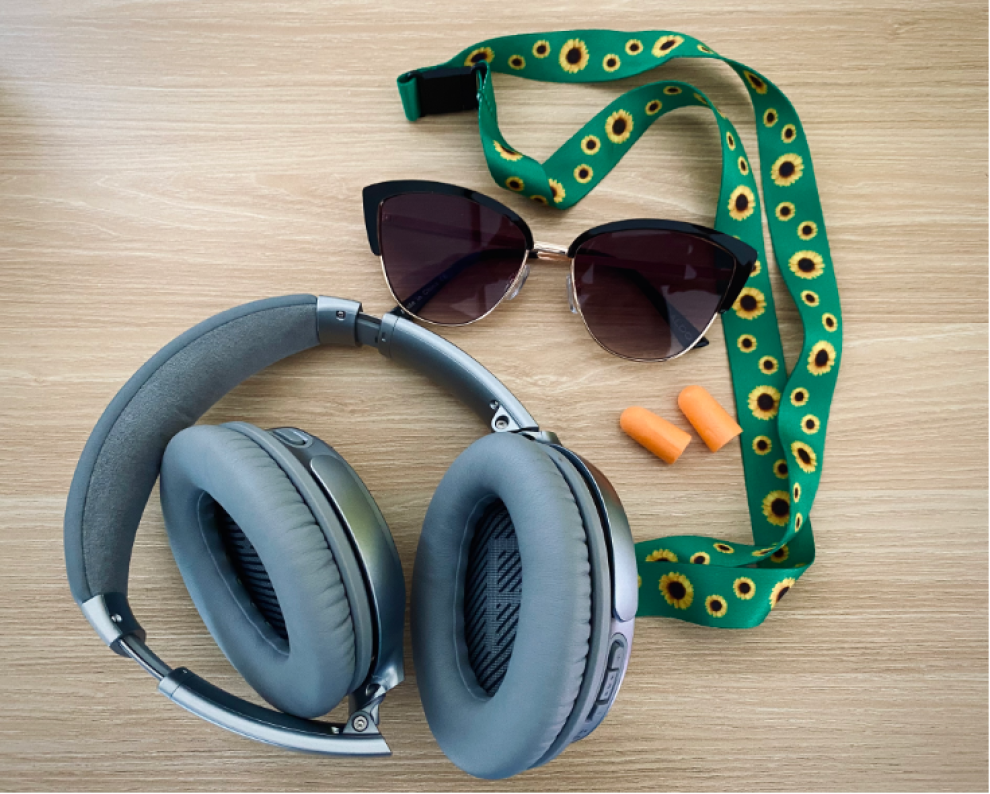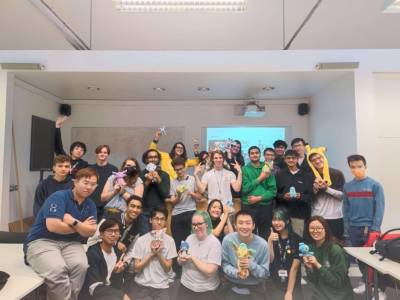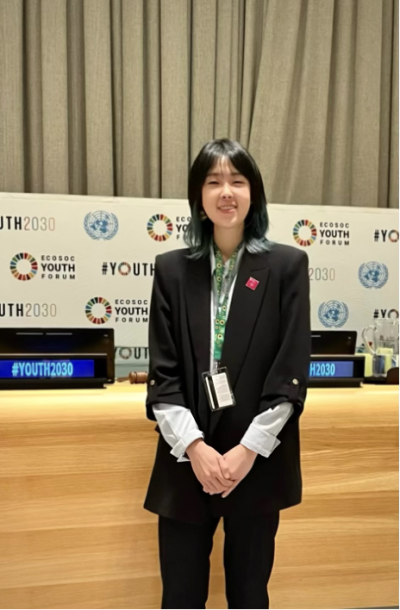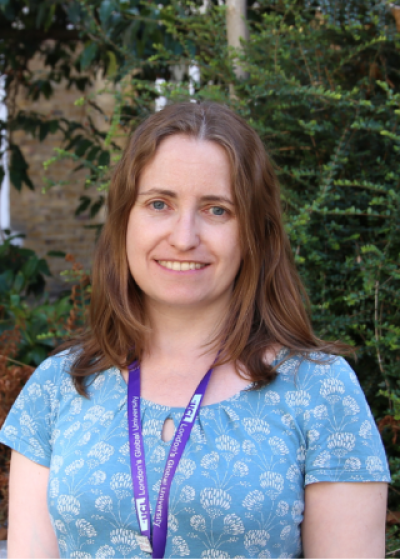Being autistic at UCL: students share their experience
17 May 2023
UCL Student Journalist Suzanna Chen asks fellow autistic students what makes them feel accepted in our community.

April saw sunlight shining on budding flowers as spring sprung in full bloom, but it also centred the spotlight on autistic individuals during Autism Acceptance Month.
While as an autistic person, I hope awareness and acceptance of people on the autism spectrum isn’t just a topic for April, I was glad to see this population being acknowledged across UCL. For example, staff and students at IOE, UCL’s Faculty of Education and Society shared their remarkable work with and for people with autism on 2 April, World Autism Awareness Day.
But while efforts and discussions on the societal inclusion of autistic individuals are crucial, it’s equally essential to make our immediate communities more accommodating to people with autism. So with that in mind, we asked autistic students: “What makes you feel accepted at UCL?”

Fin – She/Her | BA History
"I didn't begin to get any support at uni until my second year due to seeking an autism diagnosis later in life. However, once I got my medical evidence, I was flooded with support. I have received an extensive SoRA, access to the digital accessibility hub, and have been referred for screenings for dyspraxia and ADHD.
"While all this has made me feel accepted and supported, I feel the most acceptance has come from students in societies. The Autism Society has created a great online community for me to ask for advice and talk to like-minded individuals about my experiences. As well as this, being on the committee for Pokémon Society this year and being a member previously has provided huge amounts of support. The Pokesoc community are greatly accepting and accommodating, and I have felt nothing short of comfortable since my first interactions with them."

Philip – He/They | BA History
"As an autistic person at university, I don't always feel accepted. I'd imagine most autistic folks might never feel fully accepted, but that's just a natural part of existing in a neurotypical world. There have been good days, and there have been bad days. But there are a few things here at UCL that make me feel accepted.
"The existence of the Digital Accessibility Hub, for instance, is one of them. It's a place exclusively for students with disabilities to access. It's great knowing it's always there for me when I need it, especially when other areas like the main library or the Student Centre are completely full.
"The Student Support and Wellbeing team (SSW) and their advisers are also quite helpful. Not many people know this, but each department has its own SSW adviser(s). My department, History, has one named Taran, who's been very helpful this year. There are also societies (such as the UCL Autism Society, which I run) that can be a great help for autistic students.
"I doubt I'd still be here at UCL if it weren't for the support that I've received from the Autism Society over the past few years."

My experience
I can sympathise with both Philip and Fin. It'd be a lie to say I feel comfortable being an autistic student at UCL all the time, but it'd also be unfair not to recognise the amount of effort incredible people at UCL have put in place to improve our experiences.
One of the instances I felt the most accepted as myself happened when I met my personal tutor. In my first tutorial with them as a fresher, I was wearing the sunflower lanyard of invisible disabilities, which I treat as a material reminder not to be ashamed of my conditions. But I nearly succumbed to the urge to slam my laptop shut after my tutor pointed out the lanyard and asked why I was wearing it.
A reason why this can happen is that many people do not know what the lanyard represents. I had to ask around multiple times during the induction period before finding someone who knew what it was and where I could collect one.
I knew having autism should not be something I have to lie about, but all the potential negative consequences of disclosure — from the immediate awkwardness when the other party doesn't know how to react, to a farfetched fear that my future reference letters are going to be affected — were racing through my mind.
Unfortunately, stigmas and misconceptions around autism and disabilities are still prevalent, and it should be respected when someone feels uncomfortable disclosing that they have autism or any disability. But I made the personal choice to tell my tutor, and I couldn't be more glad I did.
Not only did they react respectfully and thank me for telling them, my tutor told me that they are neurodivergent as well! Our conversation then went on casually, a complete opposite of the not-so-subtle discomfort I am used to getting from others after telling them I have autism.
The relief I felt after that tutorial was overwhelming. I felt seen and understood by my personal tutor's simple act of addressing and reacting to the topic as something normal while accepting and listening to the specific obstacles I encountered due to my neurodevelopmental differences.

Aside from having individuals like my personal tutor who try to make autistic students feel accepted during interactions, there is also a team of support staff dedicated to making the social, academic, and practical environments of UCL more accommodating to students with disabilities.
Lucy Smith – She/Her | Specific Learning Differences Coordinator
“One of the best aspects of my role is providing specialist study skills support to autistic students and those with other neurodivergent conditions. I work as part of a team of three specialist tutors and we each provide 1:1 study skills support. We have had to gain both qualifications and lots of experience to be able to do this job. When we’re working with autistic students, we frequently work on developing realistic routines that consider the need to eat, sleep and to enjoy the intense interests that are separate from studying as well as revision and deadlines. Navigating Moodle and finding relevant information about assessments is another regular topic. The sessions are always focused on what the student requires.
“Another exciting part of my job is sharing how planning for neurodivergent students to be successful can make the whole university experience more inclusive and accessible for other students too. This is work in progress. We can only continue a journey from where we are, not where we think we ought to be. And in my experience being part of UCL is a jolly good place to continue my journey.”

Maria Aliu – She/Her | Disability Advisor
"It has been said that 'autism is travelling life's journey with a different roadmap.' So to me, my role includes raising awareness of autistic students within UCL and championing the use of different/tailored support when working with these students.
"Attending university can be a daunting and life-changing experience which affects all areas of one's life. The annual Autism Welcome Event aims to reduce some of the overwhelming anxieties autistic students have around the unknowns of studying at UCL. It is also a good advert for autism awareness at the university. This event is a day of in-person and online sessions that autistic students new to UCL and their parents can attend before the start of the term. This helps to support students in their orientation to the campus and enables them to meet UCL staff and listen to talks on key topics around starting at UCL.
"Autistic students can thrive at university if their needs are understood and tailored support is put in place. Creating a Summary of Reasonable Adjustments (SoRA) that is bespoke and offers some disclosure around autism can create a good relationship between an autistic student and their academic department. I have seen a great example of this in a bespoke SoRA I created for a Security and Crime Science student, which included adjustments that outlined how to supportively communicate about work to be done and how to give clear, unambiguous feedback. The result is that the student has a better working relationship with their department, making completing their Postgraduate course a more enjoyable experience."

About the author:
Suzanna Chen is a second-year undergraduate student in the Arts and Sciences programme. As a Chinese-Canadian student with disabilities, she is passionate about bringing her unique perspective and shining a light on lesser-acknowledged topics as a student journalist – and hopefully as a professional one in the future. As well as being part of the UCL VPEE Student Journalism Scheme, she is also Editor-in-Chief of the London Tab.
Image attribution (when not belonging to UCL):
- Suzanna Chen
- UCL Pokémon Society
- Philip
- Lucy
- Maria
 Close
Close

